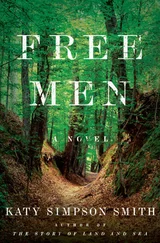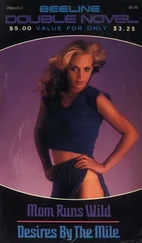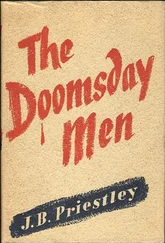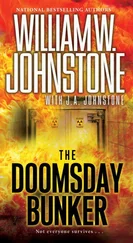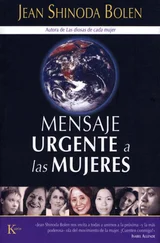Szilard replied, ‘If this is a long-lived element which gradually settles out, as it will in a few years, forming a dust layer on the surface of the earth, everyone would be killed.’
Brown’s specialism was the chemistry of rocks, particularly extraterrestrial ones. Time magazine had recently pictured him holding up a meteorite. Now he chose a geological analogy that he was familiar with: ‘You would visualize this, then, something like the Krakatoa explosion, where you would carry out, let us say, one large explosion or a series of smaller ones. The dust goes up into the air and, as was the case in that particular explosion, it circled the earth for many, many months, and even years, and gradually settled down upon the surface of the earth itself?’
Szilard leant back in his chair and spread his hands emphatically: ‘I agree with you…’ The analogy with a volcano was good. Szilard liked it. He had clearly made his point. The doomsday weapon had been born.
Hans Bethe had been listening to Szilard with growing irritation. Although his face still bore the mild-mannered smile that habitually played around his lips, a frown now creased his forehead. It was not that he disagreed scientifically with what Szilard was saying, rather that he was irritated by this typically Szilardian flight of fancy. There was no need to exaggerate the current situation. The H-bomb was going to be quite bad enough – why frighten people with what might come next?
‘You may ask’, said Szilard, anticipating his critics, ‘who would want to kill everybody on earth?’ Any country that wanted to be unbeatable in the field of war, was his dramatic answer. That would be the advantage conferred on any nation that owned the doomsday device – a hydrogen bomb rigged in the way he had outlined, using zinc or, as he later suggested, cobalt.
‘Let us suppose,’ he explained, ‘that we have a war and let us suppose that we are on the point of winning the war against Russia, after a struggle which perhaps lasts ten years. The Russians can say: “You come no farther. You do not invade Europe, and you do not drop ordinary atom bombs on us, or else we will detonate our H-bombs and kill everybody.” Faced with such a threat, I do not think that we could go forward. I think that Russia would be invincible.’
Harrison Brown was clearly struggling with the implications of what Szilard was saying. Would a nation really kill everyone, he asked, rather than suffer defeat? Szilard frankly admitted that he didn’t know the answer to this. But he added this chilling coda: ‘I think that we may threaten to do it, and I think that the Russians might threaten to do it. And who will take the risk then not to take that threat seriously?’
In a public lecture the following month, Brown told his audience that he was now convinced that there were men who would be prepared to destroy all life on earth if they could not have their own way. ‘Can we doubt for a moment,’ he asked, ‘that Hitler in the desperation of defeat would have killed everything, had he had it in his power to do so?’ 27
That February afternoon, the Round Table panel moved on to consider the possibility of vast hydrogen bombs carried in ships. If exploded in the Pacific, the radioactivity from such monstrous devices would drift across America on the prevailing westerly winds, poisoning the land and its people. It was a new and frightening danger for America. The fear of ship bombs would create headlines for the rest of the decade as America and Russia vied with each other to build the biggest H-bombs. But, as Szilard pointed out, such radioactivity is impossible to control. The awful irony facing them, added Harrison Brown, was that it was ‘easier to kill all the people in the world than just a part of them.’ ‘This is definitely so,’ agreed Szilard.
Before the discussion drew to a close, Hans Bethe talked about his statement calling upon the United States to rule out first use of the hydrogen bomb. Bethe explained that he was willing to work on the bomb in order ‘to keep our bargaining position and not to be confronted, one day, with an ultimatum from Russia that they have the H-bomb and can destroy us.’
Unlike Frederick Seitz, Szilard had not been one of the signatories to Bethe’s plea. He did not hide his disapproval now. ‘I read the statement,’ said Szilard, ‘and I was really more impressed by the sentiment in it than by its logic.’
Neither Bethe nor Seitz were particularly surprised by his blunt words, but Szilard widened his critique to make a point that was central to the whole debate about the hydrogen bomb and weapons of mass destruction generally. Bethe’s statement, according to Szilard, was just the tip of the iceberg. In 1939, he said, the American people were of one mind that it was ‘morally wrong and reprehensible to bomb cities and kill women and children’. But gradually this firm conviction had been eroded: ‘during the war, almost imperceptibly, we started to use jellied gasoline bombs against Japan, killing millions of women and children; finally we used the A-bomb’.
The level of terror imposed in warfare had been rising steadily throughout the twentieth century. Now there was a ‘general uneasiness among the scientists’ about how their science would be used in the future. ‘It is easy for the scientists to agree that we cannot trust Russia,’ said Szilard, ‘but they also ask themselves: To what extent can we trust ourselves?’ It was a chilling thought for a country that had just authorized the construction of what would become the most terrible explosive device the world had ever seen. And after the H-bomb, what next? The doomsday bomb, perhaps?
The next day, the New York Times splashed Leo Szilard’s comments about a doomsday bomb across its front page. Its breathless headline read: ENDING OF ALL LIFE BY HYDROGEN BOMB HELD A POSSIBILITY – RADIOACTIVITY THE KILLER. William Laurence told how the ‘four leading atomic scientists’ had warned that ‘the hydrogen bomb, if developed, could be rigged in such a way as to exterminate the entire world’s population or most of it’. The scientists had revealed ‘hitherto unknown information’ about the ‘potential horrors’ of a war fought with hydrogen bombs. A photograph showed Szilard discussing the issues with his fellow scientists.
Laurence also described to his readers how a hydrogen bomb could ‘transmute’ an element such as cobalt into a ‘radioactive element about 320 times as powerful… as radium’. He continued: ‘This deadly radioactive cobalt would be scattered into the atmosphere and carried by the westerly winds all over the surface of the earth. Any living thing inhaling it, or even touched by it, would be doomed to certain death.’ 28For the first time, the cobalt doomsday bomb had hit the headlines. In the coming years it would often return to remind people that humankind now had ultimate power over life and death on earth.
The New York Times was not alone in picking up on these fears of atomic apocalypse. The counter-attack on what Time magazine called ‘hydrogen hysteria’ was led by David Lilienthal. 29Speaking at New York’s Town Hall a few days after the broadcast, Lilienthal criticized what he called the ‘prophets of hydrogen Doomsday’, accusing these ‘Oracles of Annihilation’ of sensationalism. But his criticisms were blatantly political. ‘Hopelessness and helplessness are the very opposite of what we need’, said the former head of the AEC. ‘These are the emotions that play right into the hands of destructive Communist forces.’ 30
Those were strong words in the year that Senator Joe McCarthy began his anti-Communist witch-hunts in America. The nation that had invested so much in its atomic future could not afford to lose the support of its people. Lilienthal’s targets were clearly Szilard and Einstein, and for most people around the world Einstein was ‘an oracle not to be questioned’. 31
Читать дальше

